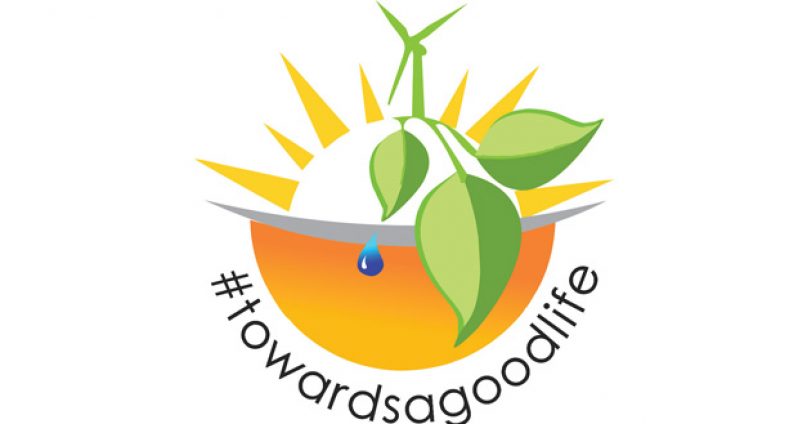By Phil Anthony Mingo
IT’s almost 10 years, but I can still remember being called to attend an interview for a scholarship.

The excitement of reading for a Master of Science Degree in India is still etched in my mind like the thoughts of yesterday. I was about to embark on a journey, which would change my life forever. This uncontainable excitement was not only because I would be going to further my studies, but mostly because I’ve heard so much about the advancement India has made in ICT and I was about to interact and learn from these innovative ideas, first hand!
I must mention that at that time, my thoughts were only on the use of websites and web applications. In fact, social media was still considered in its infancy and hi5 was the most dominant social network in Guyana. Most persons would never have thought that we could use social networking beyond presenting personal profiles and connecting with friends and family. I certainly didn’t. My study in India changed all that.
It didn’t take me long to realise the significant impact ICT was having on Kerala, the state in which I studied, and the reality was that, even the not-so-young, not only embraced it, but were doing their best to stay relevant by acquiring the necessary knowledge to stay employed in sectors which had been transformed by this new phenomenon. ICT was not only here to stay, but to be embraced with mind, soul and body.
If you don’t build your dream, someone will hire you to help build theirs. – Tony A. Gaskins Jr.
I’ve been able to experience firsthand how the use of ICT was enabling the poor to access various services even with the access of basic infrastructure. I’ve seen ICT tools enabling the bridging of the socio-economic gaps, giving the user voices too loud enough to be ignored, even by the established companies and organisations. And, as I took mental notes, I couldn’t help but to think: what if Guyana really understands its unique advantage and not only fully embraces ICT, but applies it to the very way in which we live!
As we leap steadfastly towards establishing a green economy, I believe there are numerous pillars upon which sustainable development stands that apply to ICT. These pillars are not an exhausted list, but there are a few, which I consider very significant, namely: E-Governance, E-Health, E-Environment, Agriculture, E-Commerce and Education. So the question is how can these enablers for development transform Guyana into a green economy – one that is focused on sustainable development with the use of ICT?
In India for example, farmers have long had to grapple with the fact that the period between harvesting and marketing generally came with extreme monetary lost. Sometimes it’s basically down to luck to be able to find a buyer just in time to avoid significant spoilage, or extremely high cost for remote storage. I’ve seen a similar situation in Guyana, especially among farmers far away from the central economic hubs. This situation was quickly solved in some districts with the use of mobile applications enabling farmers to digitally market their produce and enter into purchase agreements, even before a single crop was harvested.
With the availability of increased bandwidth across mobile devices, consumers now have no limit to the services they can access irrespective of where they are. It’s therefore expected that providers of various government services will seek to leverage the use of mobile applications and mobile web services to enhance the delivery of their services. The access to technology, and more specifically Information & Communication Technology tools, has given any possessor the voice required to make significant changes in his / her area of influence without having to incur the sort of cost and even “red tape” associated with doing business in times past.
For instance, I’ve seen how the use of ICT has enabled Israel, even with its small size to make a very significant impact on the world scene, especially in the areas of agriculture, advanced weaponry and security. With many of the initial startups eventually being acquired by larger technology companies worldwide, Israel has gradually become known as the technology start-up incubator.
I can see similar feats being accomplished in Guyana. It’s really not that hard to imagine, especially given the introduction of ‘4G’ technology across our major mobile services providers. However, for us to experience the Good Life, we must move from being simply consumers of technology to becoming providers of services, which can utilise these technologies.
A more practical example of the use of ICT for development is the recently launched Green Bartica mobile application on the two most popular mobile operating systems, Google Android and Apple iOS. The mobile application is intended to be the tool used by the Bartica Town Council to not only communicate progress being made in the Green Bartica Development Plan, but also it will allow the Council to generate revenue from various initiatives which will directly and indirectly benefit the township. It is expected that as 4G technology spreads to Bartica, the Green Bartica mobile app will become the Google of Bartica, allowing residents to be informed of various government services and to use the mobile application to request these services and respond to notifications sent by the Council.
In my next articles, I will expound on how ICT can be used in Agriculture, Education and for entrepreneurship to foster the Good Life. In addition, I’ll present ideas on how mobile applications can help to solve many social issues within our society.
(Comments can be sent to towardsagoodlife@gmail.com)
[box type=”shadow” align=”aligncenter” ]An avid technology enthusiast, Phil Mingo has a Masters in Computer Applications and a Bachelor’s Degree in Computer Science. He’s passionate about using ICT in education, agriculture, as well as cyber security. He’s currently the Head of Information Systems at the Ministry of Education. Phil is also a youth leader at his local church.[/box]




.png)









